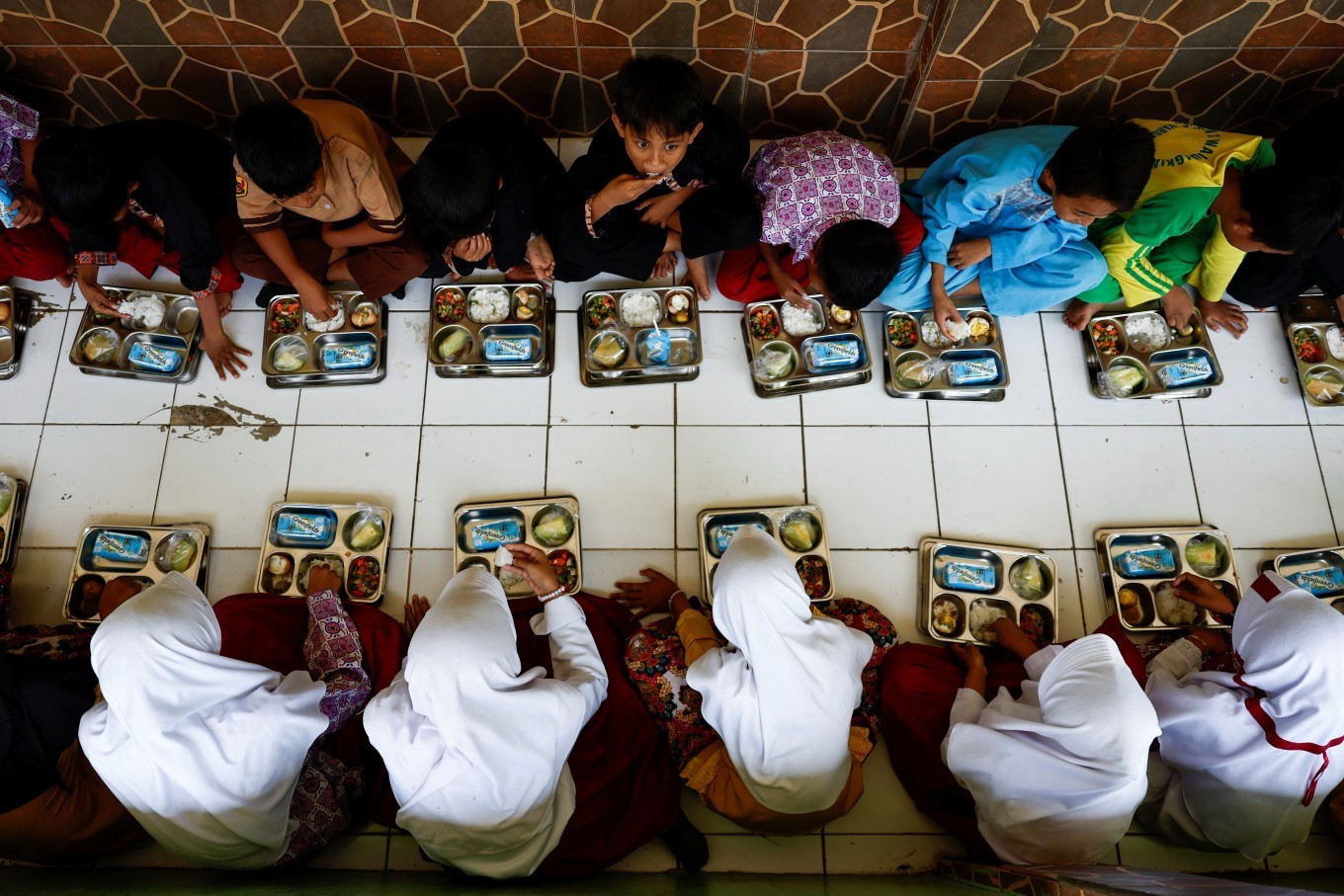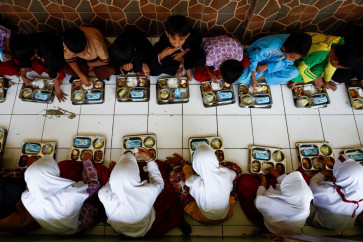Popular Reads
Top Results
Can't find what you're looking for?
View all search resultsPopular Reads
Top Results
Can't find what you're looking for?
View all search resultsAnalysis: Challenges persist as Prabowo’s free nutritious meals program kicks off
Change text size
Gift Premium Articles
to Anyone
P
resident Prabowo Subianto’s flagship free nutritious meals program was launched on Jan. 6 as a cornerstone initiative to combat malnutrition and stunting in children. Although the program has already reached hundreds of thousands across 26 provinces, the rollout has sparked concerns over its persistent funding challenges, inadequate governance and long-term sustainability.
Budgetary constraints remain a central issue. The program initially relied on the Rp 71 trillion allocated under the 2025 state budget, but this amount is projected to last only until June. Coordinating Food Affairs Minister Zulkifli Hasan estimated that fully implementing the program for an entire year would require a staggering Rp 420 trillion.
Stopgap measures to sustain the program include redirecting funds from canceled national strategic projects. There have also been reports that Prabowo’s personal funds have been used in some regions, such as Kendari. Although taking the initiative and using his private funds to sustain a public program showcases Prabowo’s commitment to making good on his campaign promise, it could also undermine accountability and blur the line between personal and state finances.
Further complicating the program’s financial viability is the suggestion to involve private sector contributions through corporate social responsibility (CSR) initiatives or source part of the budget from the National Zakat Board (BAZNAS) of Indonesia’s zakat, infaq and sadaqah (ZIS) funds.
While these avenues could alleviate budgetary pressure, observers question their scalability and sustainability. Regional Representative Council (DPD) chairman Sultan Najamuddin has advocated for a participatory financing model leveraging community generosity. However, such methods would defeat the program's purpose, which is to distribute free nutritious meals.
A more likely financing mechanism would be to have regional administrations shoulder some of the costs moving forward. According to House of Representatives Deputy Speaker Sufmi Dasco Ahmad, some regional leaders have already taken the initiative to prepare a budget for the implementation of the free nutritious meals program in their respective regions. Using the regional budget (APBD) would certainly reduce the burden on the state budget, which Dasco explained would be further communicated by the Home Affairs Ministry.
Aside from budgetary issues, administrative challenges have also hindered the program’s rollout. Delays in meal distribution, sometimes by several hours, have been reported in some schools, leaving administrators uncertain about operational procedures. These delays highlight a need for clearer guidelines and improved coordination among stakeholders. Additionally, the program’s uneven implementation across the country reflects disparities in infrastructure and readiness, with urban areas being prioritized over rural and underserved areas.



















